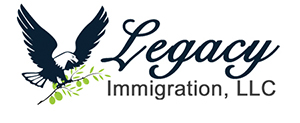There are about sixteen different types of waivers available. Depending on the immigration violation, you can use one or more waivers to support your case.
If a person enters the U.S. without being inspected and admitted or overstays his/her visa and accrues more than six (6) months or more than one (1) year of unlawful presence, then leaves the U.S., the person will be barred from re-entering the U.S. for three (3) or ten (10) years, respectively. This “bar” is only triggered by the individual’s physical departure from the U.S.
Once outside the U.S., the individual will have to file the appropriate waiver(s). Individuals who departed the U.S. after being ordered removed by an Immigration Judge, initially failed to depart after an order of voluntary departure, or after an order of expedited removal by CBP, require permission to reapply for admission.
In addition, if the individual is applying for an immigrant visa or nonimmigrant visa, the person must file a waiver of inadmissibility and prove “extreme hardship” to a qualifying relative. These are difficult cases to win even for experienced counsel, especially when the relative is already outside of the U.S.
We have helped some clients who entered illegally remain in the U.S. and obtain their green cards by obtaining advance parole or seeking protection under Section 245(i). We also have experience filing waivers for intending immigrants who have overstayed their visas but committed certain crimes. We conduct several phone and email exchanges to gain the additional details that demonstrate how our client’s case of “extreme hardship” exceeds the average hardship experienced by others.
Foreign nationals who wanted to obtain an immediate-relative green card but were not eligible because they entered the U.S. unlawfully have previously been too scared to leave the U.S. to consular process. The traditional waiver process required foreign nationals to leave the U.S., attend a consular interview, and await the officer’s decision. In the event the waiver was not approved (for failure to prove extreme hardship), the foreign national would have to remain outside of the U.S. for three or ten years, depending on the amount of unlawful presence.
In March, 2013, these foreign nationals were able to file a “provisional waiver” which allows the foreign national to complete the processing of the waiver state-side. This means that the foreign national only needs to depart the U.S. and remain outside until the interview is conducted, which can be a few weeks.
Contact Us
We offer a free case evaluation by phone. We are available Monday through Friday from 8:30 am to 8:00 pm and Saturday from 8:00 am to 12:00 pm. In-person consultations are by appointment only. Please call our office at 301.529.1912 or click here to contact us. Please be sure to provide a timeline of events along with details of your entire immigration history.










